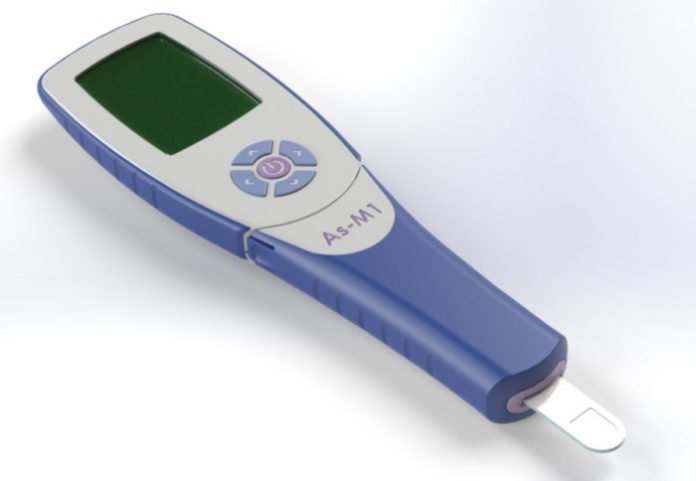Imperial scientists have developed a low-cost, easy-to-use sensor which can test drinking water for arsenic in just one minute. This small, sensitive and accurate sensor produces an immediate measure of the arsenic level in water at a cost of less than $1 per test.
Around the world, 140 million individuals drink water containing dangerous levels of arsenic, as indicated by the World Health Organization. Here and now presentation causes skin sores, skin malignancy, and harm to the intellectual advancement of youngsters, while long-haul introduction prompts deadly inward growths.
Currently available tests for arsenic need to either be carried out by scientists in a laboratory or using chemical test kits that produce toxic chemicals as by-products and take up to half an hour to give a result.
This newly developed sensor resembles the blood glucose meters. Once a drop of water hits the test strip, which is inserted into the sensor, it produces a digital reading of the arsenic level in one minute.
Scientists stated it is extremely easy to use that people in rural areas in low and middle-income countries can use it efficiently.
Universities and Science Minister Sam Gyimah said: “This sensor to detect harmful levels of water contamination will make a huge difference across developing nations, potentially saving millions of lives.
“Too many people are exposed to dangerous levels of arsenic and this product is a clear demonstration of our Industrial Strategy in action, creating the technology of tomorrow and supporting the high-value, high skilled jobs that will make Britain fit for the future.”
Professor Tony Cass from the Department of Chemistry at Imperial said, “It’s been a real journey to take an idea, conceived of at a London Centre for Nanotechnology research day, through proof of concept research, then into prototyping and scale up and now to field trials in Bangladesh. Now the technology has been spun out we can look forward to scale up of manufacture and ultimately deployment.”
Dr. David Sarphie, CEO of Bio Nano Consulting, said: “Arsenic contamination of water is a hugely important issue, and the technology hasn’t existed to enable it to be addressed properly. We feel that a user-friendly, cheap and rapid test could be extremely beneficial in terms of revolutionizing how the problem might be addressed.
“We were doing some early-stage field trials a few months ago in Bangladesh and a lot of the villagers were actually pleading with us to come and measure their well because they had no idea how much arsenic was in their water.”
